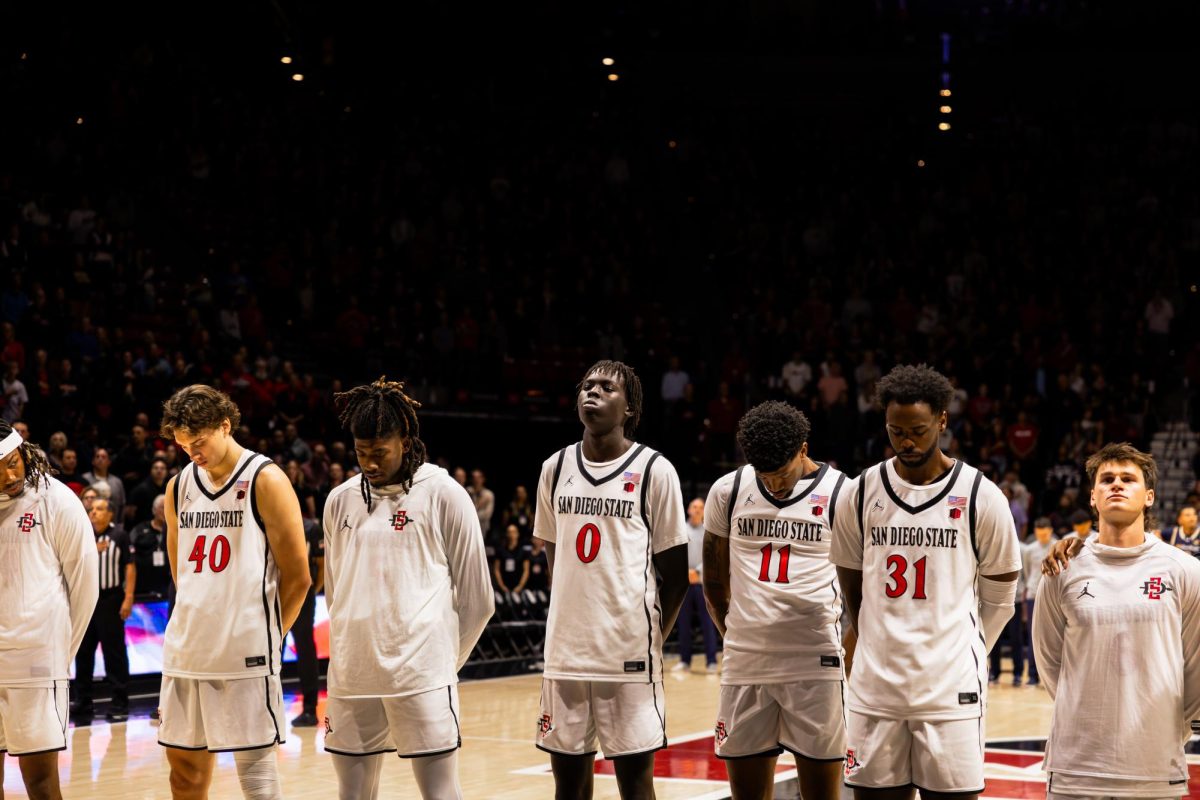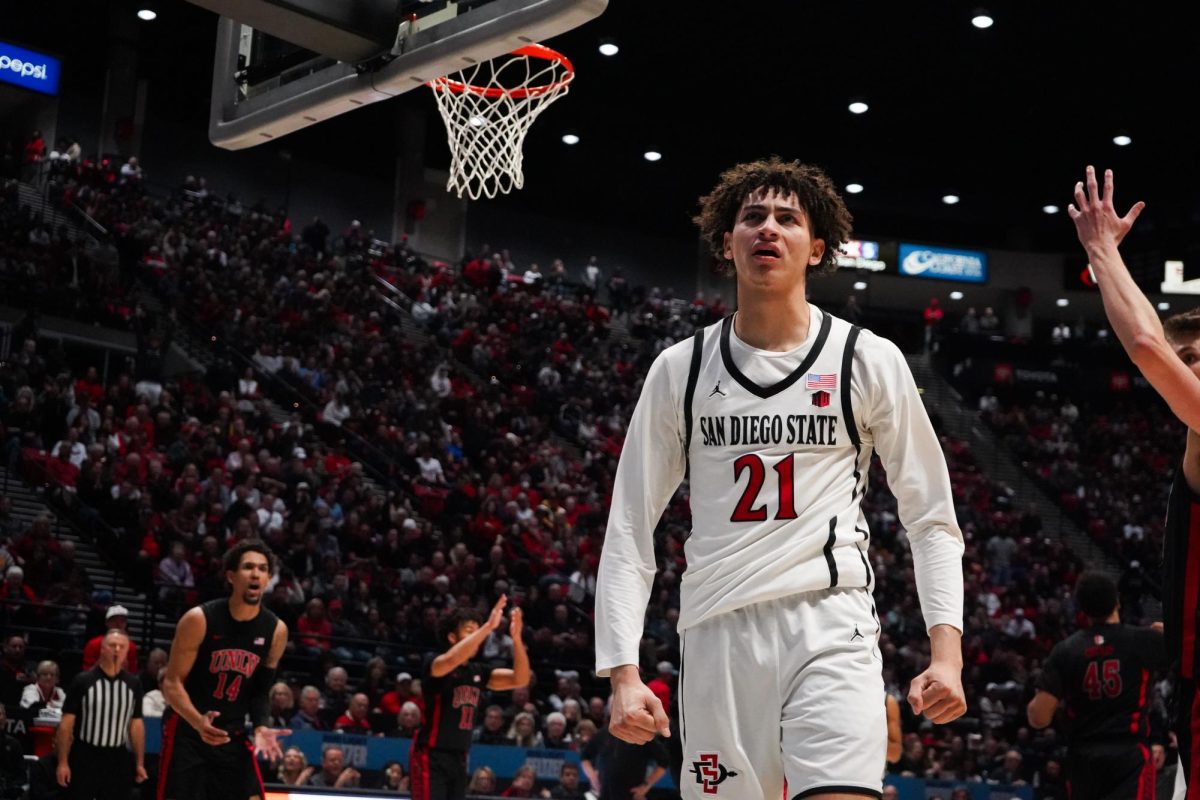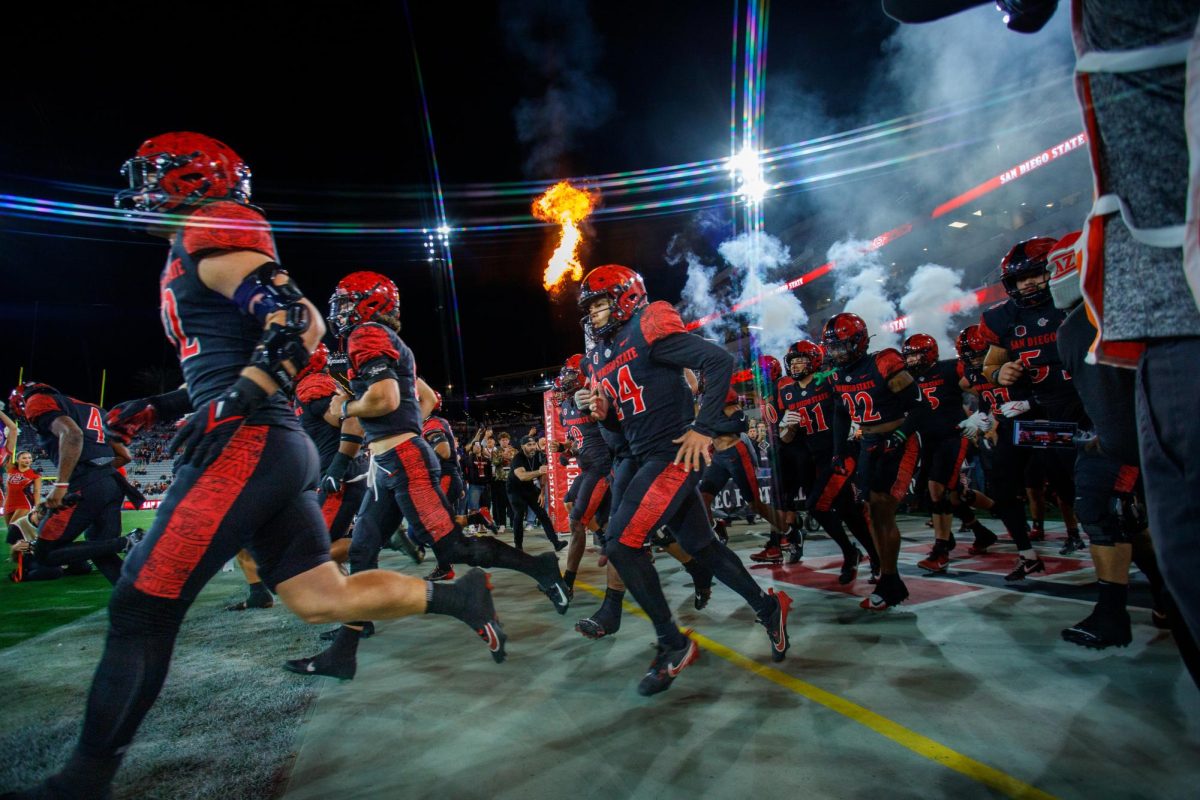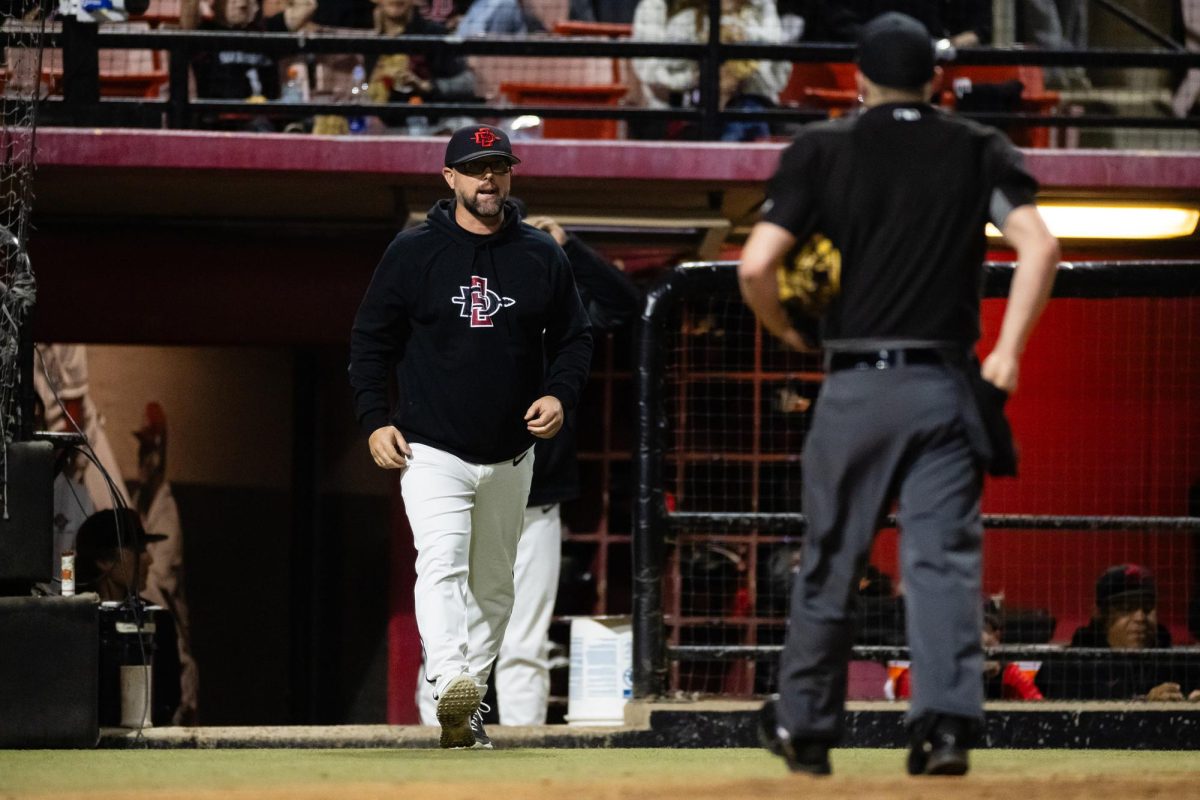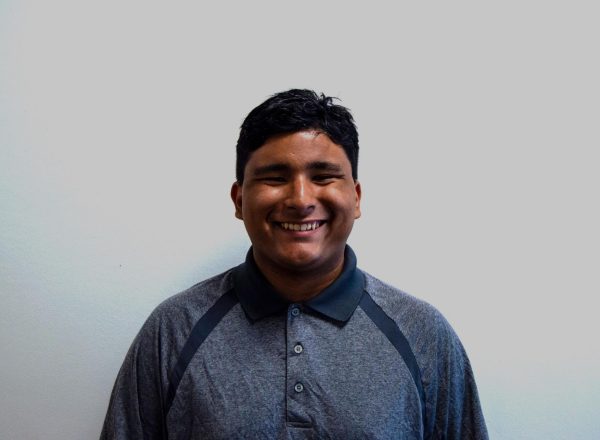Editor’s note: The story has been updated to clarify a quote.
College athletes used to play their sport for the love of the game and loyalty to their team. The players would work their butt off to make it to the next level, which is ultimately playing professionally.
But with loads of money being thrown around these days, college athletics has turned into a business, rather than the game they grew up dying to play.
NIL, which stands for Name, Image, and Likeness, is still relatively new but has taken over all of college sports and changed the game in ways that are still coming to light. As student-athletes began receiving endorsements for the attention they received, the mindset of staying loyal to a school shifted completely.
NIL grew out of a series of lawsuits and attempts to unionize student-athletes whose labor has helped prop up colleges across the country. Today, the NCAA requires that student-athletes disclose their earnings. Schools like SDSU act as pass-throughs for this financial information but keep the details private, meaning it’s difficult to say how much money is changing hands and why.
The student-athletes themselves disagree over whether NIL has helped or hurt college sports so far, but seemingly everyone understands we’re in a new era that will have long-term ramifications for the teams and schools they play for.
Football
People who learn about NIL may see the public headlines of players making tons of money and buying lots of jewelry, but that isn’t what NIL truly means, said Brenden Hill, the NIL coordinator at SDSU.
“A lot of people see the clickbait and the crazy headlines and the Lamborghinis that are out there, and they think that that’s NIL, but truly NIL, it’s the opportunity for our students to connect with the community,” Hill said. “Whether that be through community service or businesses, build relationships, gain transferable skills like how to be an entrepreneur, how to negotiate, how to read a contract, how to speak up for yourself, how to be on time.”
The implementation of NIL in college sports has forced players to think about how money could affect their relationships with teammates. Some players who receive NIL may feel like they deserve the same compensation, causing friction inside the locker room.
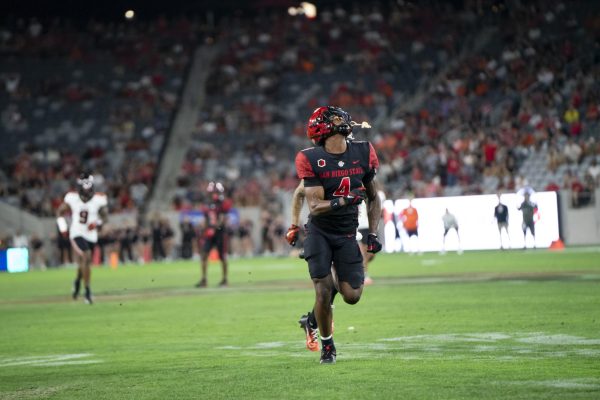
“You know, a guy might be jealous if his teammate is making more money than him, and he might feel like he should be making the same amount that he’s making or even more,” said Louis Brown IV, a star wideout for the San Diego State Aztecs. “So I feel it definitely does trigger that relationship.”
As money became a factor in college athletes choosing their schools, that became the biggest priority for what school they would attend.
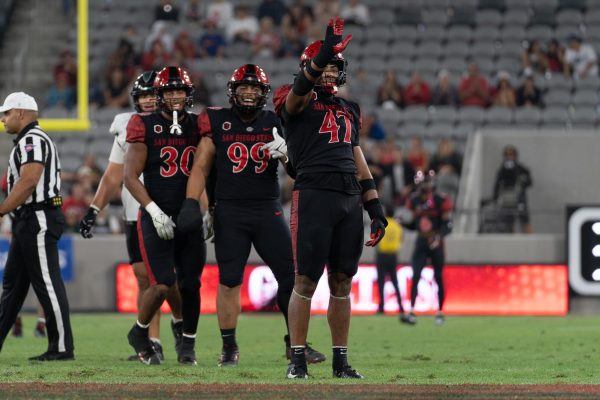
SDSU star linebacker Trey White said he believes NIL has affected the minds of athletes.
“I feel like it’s shifted a lot, like the mentality of players. They want to go to different schools…not even if that’s the best fit for them, just because they’re getting offered a lot of money,” White said.
With money in the equation, their commitment became less about the actual school and more about what’s best for their family and financial status. This led to college sports being more of a business decision overall.
However, White feels that it’s always been a business decision even before NIL had been implemented.
“I feel like it’s always been a business, especially as a high schooler, once you get offered your offers… [nothing’s] set in stone until you sign anything…You could decommit [or] they could take away your offer,” White said.
Even if a high school athlete receives numerous offers, nothing is confirmed until they commit to a school. White believes football has always been a business since colleges can take away an offer at any point.
If a player waits too long or is expecting other offers, the schools that have offered the athlete can withdraw in an instant. Therefore, it is still seen as a business decision since nothing is guaranteed until they put pen to paper.
NIL boosters will say the sponsorships and brand deals change the lives of the players completely, putting extra money in their pockets. However, White has not noticed much of a difference in his personal life, besides attending sponsored events.
“[It’s] pretty much the same other than activities I have to do outside of football, which I don’t mind doing at all. I actually have a lot of fun meeting new people and creating new connections,” White said.
Since the players have to go to certain events and meetings for their endorsements, they have more opportunities to interact with fans and supporters. White has found this enjoyable since he can spend more time with those who follow his career. Without these requirements, he would never have the time to show love to those who show love to him.
Despite these interactions being a bright spot for White’s experience with the NIL, his overall feelings are that the game doesn’t feel as significant anymore.
“I feel like that kind of doesn’t make college football, college football like people are trying to play for things other than money,” White said. “They’re just not really trying to play football anymore.”
He feels that athletes are playing for the paycheck nowadays, rather than for the love of the game. There is less passion to play football since they are getting so much money at a college level.
The intensity of college football was always at a high level because everyone wanted to get to the next level, which was playing in the NFL. Now they don’t even need to make it to the professional level to get paid, which ultimately takes away from how college football used to be played.
The NIL has opened many opportunities and endorsements to college football players, which they deserve for all their hard work. However, it has completely flipped the narrative into being a business organization, rather than old school college football that everyone loves.
Basketball
2023 was a historic season for Aztecs Basketball. Its NCAA Tournament run thrust the team and its players into the national spotlight. And just like that, the star roster evaporated.
Because they’re not paid for their competitive labor, several players left for other markets in pursuit of product endorsements and commercial licensing deals. Lamont Butler, the point guard who scored a game-winning buzzer in the Final Four, headed to Kentucky.
“I just felt that leaving San Diego State was gonna be the best business decision for myself and my family,” he told NBC 7 in a rare interview earlier this year.
With the college athletics landscape constantly changing due to NIL, Hill is available to SDSU student-athletes for advice. He counsels them to keep performing “at a really high level” so “the opportunities will present themselves,” he said.
Not all prominent collegiate athletes are making decisions based on NIL opportunities, however.
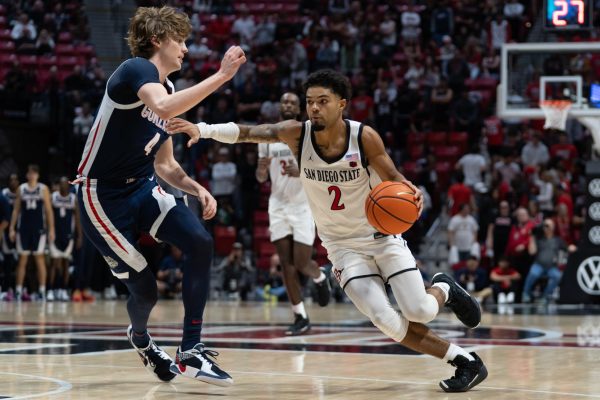
“I think it’s great that we’re able to get paid for our success on the field or court,” said SDSU basketball player Nick Boyd. “But when money becomes the sole focus, it can cloud your motivations, and that’s where the challenge lies.”
Boyd, who transferred to SDSU after a successful run with Florida Atlantic University (FAU), values the tradition of winning and the opportunity to compete at a high level.
“When I was at FAU, I loved the team, but NIL made things a little complicated,” he said. “There’s a lot of pressure, and sometimes, that can take away from the hunger and drive to just play the game.”
Boyd’s experience reflects the new reality of college sports. The vast sums of money that come with NIL can pull players in different directions, making it harder for them to focus solely on their sport.
“It’s not just about playing anymore; it’s about building your brand and finding the right financial opportunities,” Boyd explained.
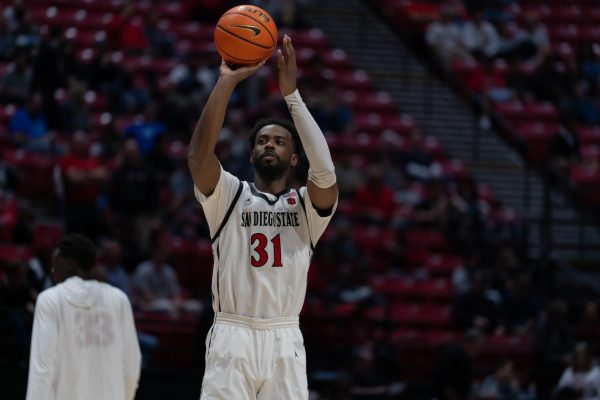
For Jared Coleman-Jones, NIL was part of his decision-making process, but it wasn’t the main factor.
“It wasn’t the top priority for me, honestly,” he shared. “I wanted to get better as a player and continue my education. But yes, NIL was a factor—just not the deciding one.”
Coleman-Jones sees the financial opportunities as a bonus, but he doesn’t let them dominate his focus.
“Building good habits now will make me more money down the road than any single NIL deal could.”
Winning culture and coaching are big factors when choosing the right school. Reese Waters, senior men’s basketball player at SDSU, made it clear he is “chasing joy” and success, not NIL money. He discussed NIL money influencing school choice in a preseason interview.
“You see certain people leaving schools to chase and find more money, everybody’s situation is different. I can’t speak for it,” Waters said. “But if your only motivation for basketball is money, I think it’s going to be really, really hard to find yourself. And forget basketball, just, you know, in life.”
Waters is thankful for the financial gain NIL deals can bring but sees both sides to the new college sports landscape.
“I think there’s positives and negatives to everything,” Waters said. “It’s great that we make money off of what we do. But it’s turned college basketball into more of a business now because money is involved.”
The 6 foot 6 inch guard is the top returning scorer for the Aztecs and was selected to the preseason All-Mountain West Team for the 2024-2025 season. He is seen as a prime candidate for NIL deals.
Understanding NIL
As NIL has been introduced to college athletics, everyone just wants to understand how it operates through the players. NIL deals can be targeted at an individual athlete or group based through collectives, a network of private companies, and nonprofits that fundraise and connect athletes with donors. Several websites – which market themselves as Zillow for student-athletes – have also materialized to give outsiders the ability to bid for a student’s time and attention off the field.
“You have what people would call traditional NIL, that would be like an endorsement deal, a marketing deal. The student-athlete would contract with the brand, and they pay a marketing agent a fee for that type of deal,” Hill explained. “Then you have the collective side, which is more of the fundraising piece of NIL that’s out there. Those funds that are raised are then distributed based on what the coach feels is fair and equitable across the team.”
The NIL era is an ever-changing time in collegiate athletics. Understanding the state-by-state legislation and deals can be complicated for the average student-athlete. There isn’t always time to focus on the fine print between classes, extracurriculars, and competing at the Division I level.
“I think it’d be complex to the average person,” Max Forer, a sports and business attorney with the Portland-based law firm Miller Nash LLP.
As a result, Forer encourages students with NIL opportunities to educate themselves or seek outside advice to navigate it all.
“It’s important, I think, athletes have advisors or people that are supportive – lawyers, agents, whatever – that can help explain what these things mean,” Forer said.
Every situation is different, Forer added, and every athlete doesn’t need to hire an agent.
It depends, he said, “upon your market value and what you want to do” and an agent is there for athletes, especially if you really want to concentrate on your brand.”
Some athletes are being offered millions of dollars while others are getting just a couple hundred. There are wide disparities in the NIL marketplace. Making sure athletes get sound “counsel and advice” is a priority in this “evolving landscape,” according to Forer. Even if it is a parent or friend, any advice helps.
Going Forward
Though people may get lost in the popular headlines of NIL, Hill said he’s focused on what the future holds.
“So I think that’s been one of the things is really just making sure we are prepared for all of our sports when and if the day comes that a school tries to steal one of our players via NIL, or lure them away via NIL, that our coaches aren’t blindsided…”
As SDSU continues to adapt to the evolving NIL landscape, the challenge remains: how to balance the newfound financial opportunities with the tradition of loyalty, teamwork, and academic success. As Waters put it, “Money is great, but if your sole motivation is to chase it, you’re going to have a hard time finding fulfillment—both in basketball and in life.”





